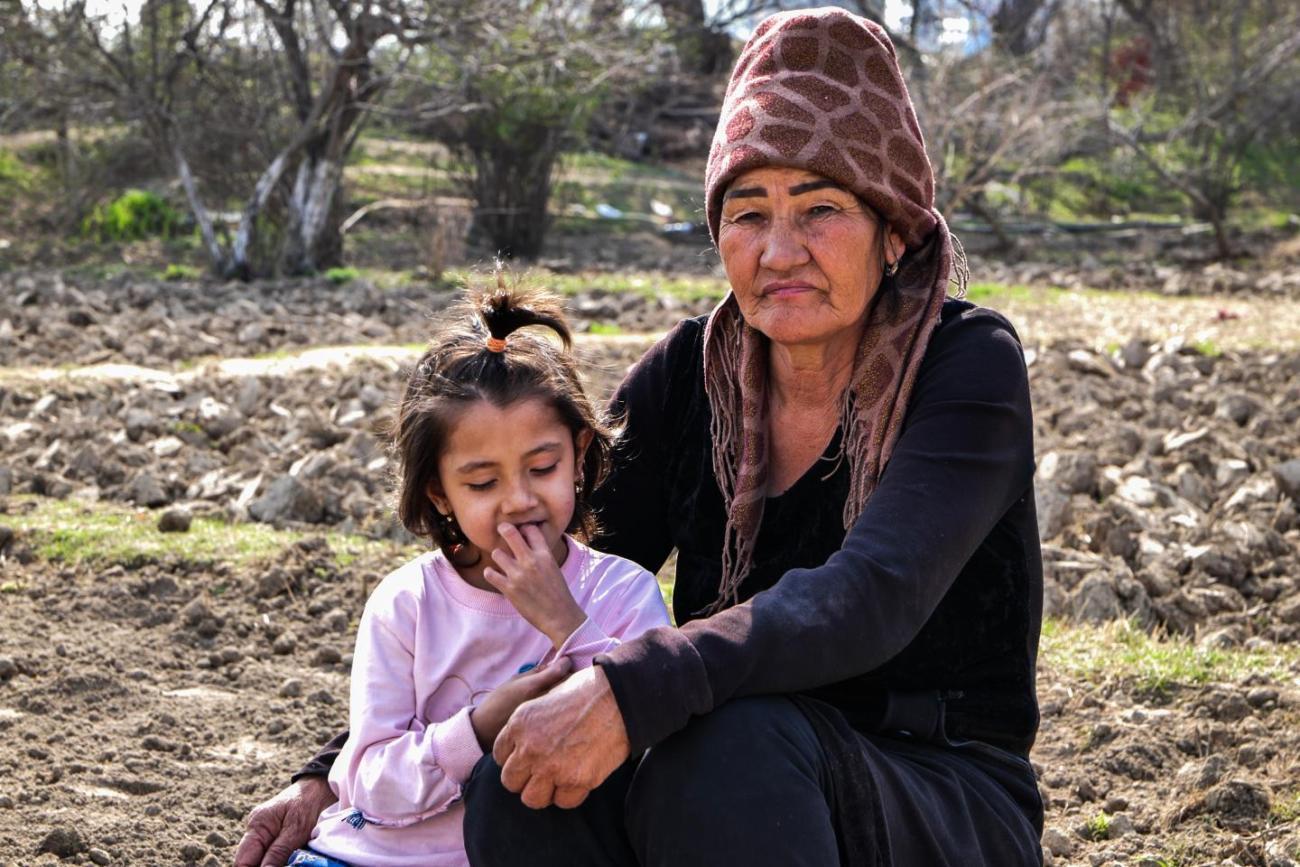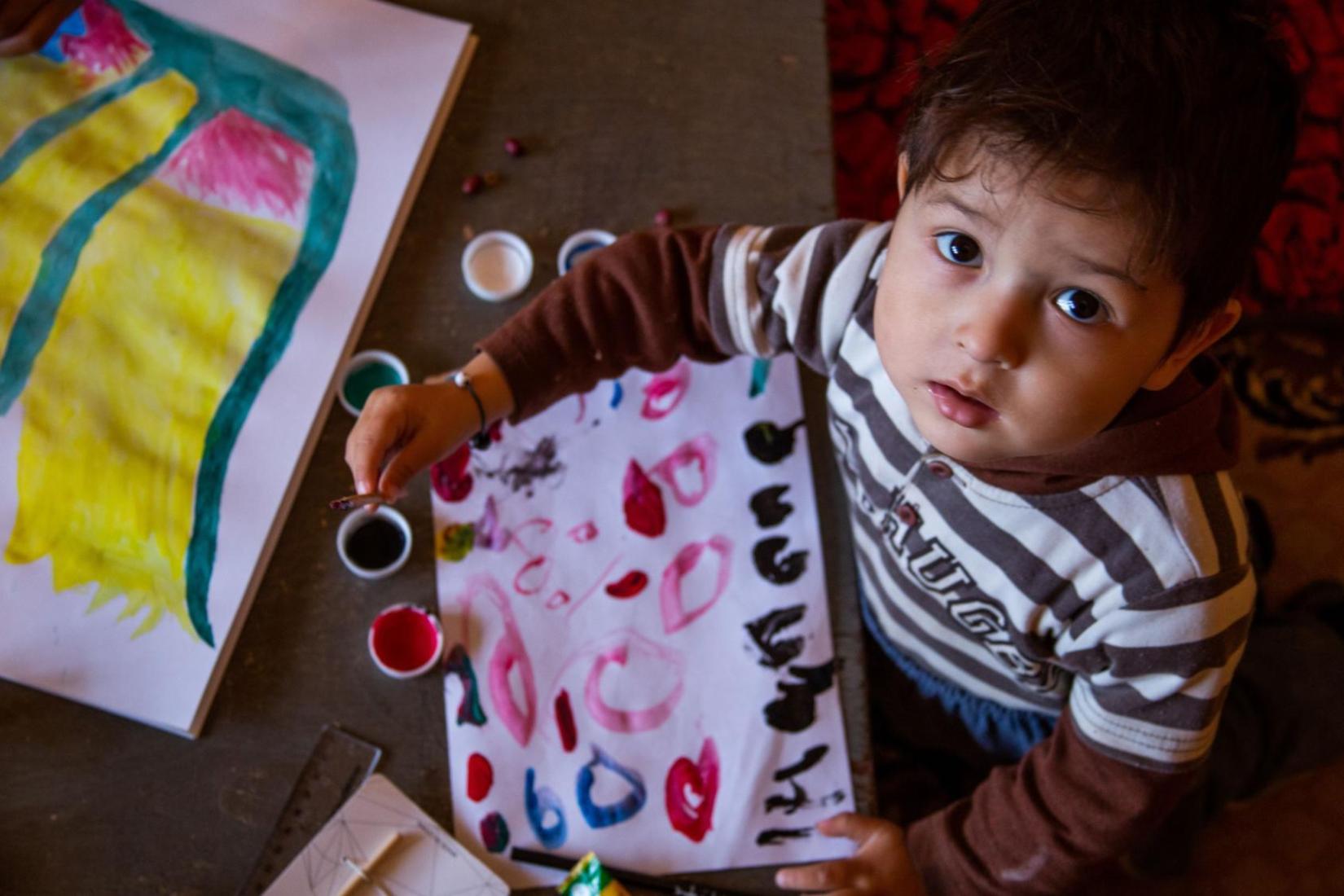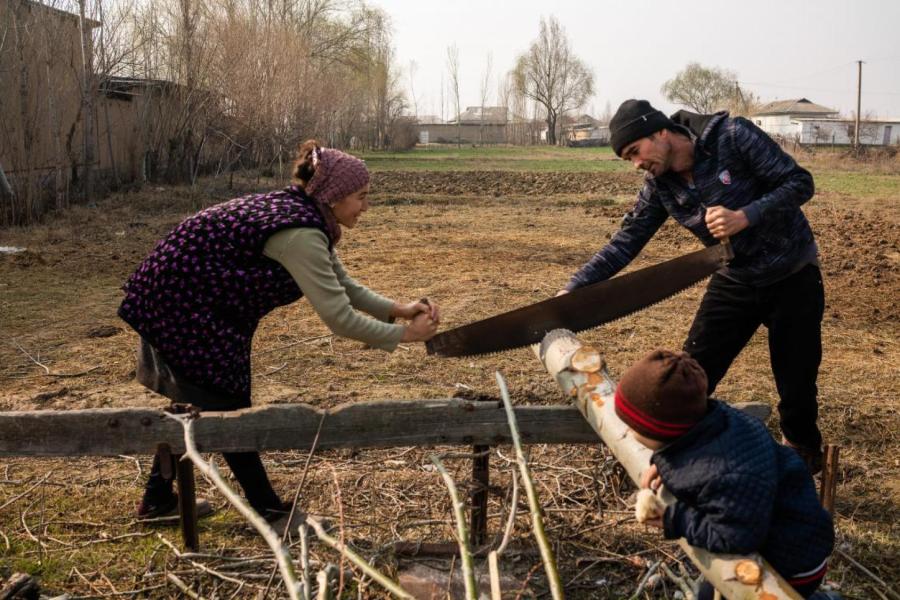Uzbekistan’s invigorated social system: a powerful buffer to support the most vulnerable

Soaring food prices and the loss of income due to the COVID-19 pandemic has pushed more and more people around the world into poverty.
In Uzbekistan, when a low-income household applies for financial support, it is common practice for a Mahalla* Commission – a self-governing body made up of 15 respected members of the community – to screen and review each individual application in person.
“In the past, many documents were required to receive pensions and financial assistance… including a certificate from three neighbours indicating whether we were working or not,” says Dildora Abiyatova from Sirdarya region in eastern Uzbekistan.
“There were a lot of people in the commission when they invited us to talk… We couldn’t tell the story to everyone… It was embarrassing to tell them about our situation” says Malika Qosimova, a young mother from the same region.
For the thousands of families seeking assistance through the Commission, the process was often humiliating and emotionally challenging.
To help avoid this unnecessary distress and ensure households across Uzbekistan receive more targeted forms of support, the UN in Uzbekistan – led by UNICEF, ILO and UNDP have worked together with the government to launch UN Joint Programme on Strengthening Social Protection.
Initially launched in 2020, the joint programme aimed to strengthen the country’s social protection system and improve support to vulnerable populations through more targeted needs assessments and a closer integration of social workers within the community.
Through this professional assessment, social workers were able to build more tailored and needs-specific response plans for families and move away from the one-solution-fits-all approach which does not work in social services.
As part of this Joint Programme, the UN Country Team piloted a new Social Protection Single Registry (SPSR) – a digital and transparent system for applying, assigning, and paying social benefits to low-income families. The SPSR provides a comprehensive picture of the national profile of beneficiaries, as well as the performance of the national social protection system overall. To strengthen social assistance across the country and to solve the root causes, the UN and partners have been working on case management in close collaboration with mahalla-level social workers.
Through the work of the joint programme, the testing of social services based on case management conducted in Tashkent and Angren successfully reached 106 families, including 192 children (101 boys and 91 girls), and 12 children with disabilities (8 boys, 4 girls).

As well as serving as a unified database, the SPSR removes barriers to accessing social protection programmes by streamlining application, eligibility assessment and benefit delivery processes.
“The SPSR is a foundation of a digital technology platform as part of the overall strategy of reforming the social protection system in the country," says Geoffrey Ijumba, UNICEF Deputy Representative in Uzbekistan. "It is expected to become a central delivery mechanism for all social protection programmes in the future," he added.
Over the past three years, the SPSR has provided social allowances to more than 1,600,000 families across Uzbekistan, helping them overcome a number of challenges related to low income. Particularly during the COVID-19 pandemic, this improved social protection system offered a powerful buffer of support to the most vulnerable groups across the country; recognizing that alongside protecting people’s health, it was essential to preserve incomes and employment opportunities.
“Now everything has changed”, says Dildora. “Only a birth certificate, passport copy, and marriage certificate are required. Now there is no need to run around different offices.”

As well as the economic fallout caused by the pandemic, Uzbekistan – like other countries around the world – is now facing a triple crisis of food, energy and finance, which poses a new set of challenges to vulnerable groups across the country.
Without effective social protection measures to support these groups during periods of crisis, poverty will continue to pass from one generation to the next. UN agencies across Uzbekistan are committed to working with partners to strengthen systems of support, and end needless cycles of poverty.
*Mahalla is a self-governing community or neighbourhood which plays an important role in monitoring social well-being and the welfare provision on the ground.




